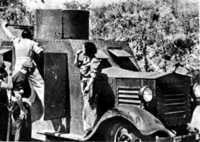Arnon Grunberg's Blog, page 465
October 4, 2012
Violence

Debate
Mark Mazower in Thursday’s FT:
"Economics has driven the debate on the eurozone crisis, but it is the politics we should be worrying about. After all, the postwar European project was all about using economic integration and its benefits to emancipate the continent from its bloody past. But now in southern Europe, violence is returning as a direct consequence of the austerity programmes that are touted as the price of continued eurozone membership. What is at stake is not just membership of a monetary union; it is the nature and future of democracy itself."
(Read the complete article here.)
I’m not sure if we can talk about the return of violence in southern Europe. I don’t see a new civil war in Spain, but perhaps I’m naïve or overly optimistic.

October 3, 2012
Combination

Waving
The taxi driver who picked me up at Dublin Airport said: “A few days ago a man was waving at me with two bottles of beer. I stopped and I asked him: ‘Do you know what you have in your hands?’ He said: ‘That’s to keep my balance.’ I said: ‘Come closer.’ He came closer and then I told him to fuck off. ‘That means you are not taking me?’ he asked. Alcohol and drugs, that’s the worst combination."

October 2, 2012
Blister

Hut
Today we we walked from Hinterzarten to Todtnauberg to visit Heidegger’s hut. The hike took a bit longer than expected; we made it to Todtnauberg, but we never made it to Heidegger’s hut.

October 1, 2012
Benefits

Cigars
I used to spend my summers in the Black Forest. Now I’m back in Hinterzarten for the yearly outing for my employees. Well, employees.
(Read more about this outings here, here, and here.)
The men smoked cigars, the women talked about friends with benefits, one of my female employees got sleepy, and we didn’t play foosball as we did two years ago. But even without foosball it was a highly enjoyable evening.

September 30, 2012
Borders

Fear
A friend alerted me to this article by William J. Broad in the NY Times:
'Advocates of airstrikes on Iran’s nuclear facilities have long held that the attacks would delay an atom bomb for years and perhaps even buy Israel enough time to topple the Iranian government. In public statements, the Israeli defense minister, Ehud Barak, has said that an attack would leave Iran’s nuclear program reeling, if not destroyed. The blow, he declared recently, would set back the Iranian effort “for a long time.”
Quite the opposite, say a surprising number of scholars and military and arms-control experts. In reports, talks, articles and interviews, they argue that a strike could actually lead to Iran’s speeding up its efforts, ensuring the realization of a bomb and hastening its arrival.
“An attack would increase the likelihood,” Scott D. Sagan, a political scientist at Stanford University’s Center for International Security and Cooperation, said of an Iranian weapon.
The George W. Bush administration, it turns out, reached an even stronger conclusion in secret and rejected bombing as counterproductive.
The view among Mr. Bush’s top advisers, recalled Michael V. Hayden, then director of the Central Intelligence Agency, was that a strike “would drive them to do what we were trying to prevent.”'
(Read the complete article here.)
As I said before, I believe that the fear of an Iranian bomb is greatly exaggerated.
But if we rally want to upset all of the Middle East we should bomb Iran. A Kurd once told me: “It will take another World War to change the borders in this region.”

September 29, 2012
Enough

Wednesday evening
On Saturday morning I discovered that I forgot to bring my underwear from New York.
There were plenty of socks in my suitcase, one pair of swimming trunks, but no underwear.
The reader with an observant eye will have noticed that I left New York on Wednesday evening.
Yes, sometimes I forget to change my underwear. And my mother says: “If you change your underwear once a week, that’s more than enough.”
You might object to my mother's wisdom, but I will answer: Isn't her wisdom the essence of a sustainable economy?

September 28, 2012
Domestic policy

Anxiety
A few weeks ago I wrote about Paul Tough’s book ‘How Children Succeed – Grit, Curiosity and the Hidden Power of Character’.
(Read the entry here.)
In today’s NY Times David Brooks writes about this book:
‘In Paul Tough’s essential book, “How Children Succeed,” he describes what’s going on. Childhood stress can have long lasting neural effects, making it harder to exercise self-control, focus attention, delay gratification and do many of the other things that contribute to a happy life.
Tough interviewed a young lady named Monisha, who was pulled out of class by a social worker, taken to a strange foster home and forbidden from seeing her father for months. “I remember the first day like it was yesterday. Every detail. I still have dreams about it. I feel like I’m going to be damaged forever.”
Monisha’s anxiety sensors are still going full blast. “If a plane flies over me, I think they’re going to drop a bomb. I think about my dad dying,” she told Tough. “When I get scared, I start shaking. My heart starts beating. I start sweating. You know how people say ‘I was scared to death’? I get scared that that’s really going to happen to me one day.”
Tough’s book is part of what you might call the psychologizing of domestic policy. In the past several decades, policy makers have focused on the material and bureaucratic things that correlate to school failure, like poor neighborhoods, bad nutrition, schools that are too big or too small. But, more recently, attention has shifted to the psychological reactions that impede learning — the ones that flow from insecure relationships, constant movement and economic anxiety.’
(Read the complete article here.)
I wholeheartedly agree but since there is almost always some good to be found in evil, isn’t it possible that there are children who succeed not despite of their childhood trauma’s but because of them?

September 27, 2012
Fear

Thieves
This afternoon I spent some time in a hospital in the eastern part of the Netherlands, to be exact in the beautiful town of Doetinchem.
A doctor said: “Don’t worry about your laptop bag. People from the west are afraid of thieves, but nobody is going to steal your laptop here.”

September 26, 2012
CIA

Doctor
Anahad O’Connor in the Times on mistakes and forgetfulness in the operating room:
‘On an overnight shift in 2005, Sophia Savage, a nurse in Kentucky, felt a crushing pain in her abdomen and started vomiting.
The next day she underwent a CT scan, which led to a startling diagnosis: A surgical sponge was lodged in her abdomen, left behind, it turned out, by a surgeon who had performed her hysterectomy four years earlier.
Ms. Savage’s doctor ordered immediate surgery to remove the sponge.
“What they found was horrific,” Ms. Savage said. “It had adhered to the bladder and the stomach area, and to the walls of my abdominal cavity.”
The festering sponge had spread an infection, requiring the removal of a large segment of Ms. Savage’s intestine. She sued the hospital where the hysterectomy had taken place, and in 2009 she won $2.5 million in damages. But the award has been appealed, and her life has been in tatters. Suffering from severe bowel issues and unable to work, Ms. Savage, 59, has been racked by anxiety and depression. Most days, she said, she cannot bring herself to leave home.
“I never dreamed something like this would happen to me,” she said.
Every year, an estimated 4,000 cases of “retained surgical items,” as they are known in the medical world, are reported in the United States. These are items left in the patient’s body after surgery, and the vast majority are gauzelike sponges used to soak up blood. During a long operation, doctors may stuff dozens of them inside a patient to control bleeding.
Though no two cases are the same, the core of the problem, experts say, is that surgical teams rely on an old-fashioned method to avoid leaving sponges in patients. In most operating rooms, a nurse keeps a manual count of the sponges a surgeon uses in a procedure. But in that busy and sometimes chaotic environment, miscounts occur, and every so often a sponge ends up on the wrong side of the stitches.’
(Read the complete article here.)
A former girlfriend of mine once was afraid that a doctor in Germany left a needle in her arm, but later we found it on the floor.
And a couple of years ago I spoke to a man who claimed that the CIA had installed a listening device in his head.
When I asked him “how on earth did the CIA managed to do that?” he answered: “My dentist did it.”
We should trust that surgeons leave sponges and needles by mistake in the bodies of their patients.

September 25, 2012
Conversation

Guard
In 2003 I was in Lima on Yom Kippur, research for my novella “Monkey Grabbing Hold of Happiness”.
For one reason or another I decided to go to a synagogue.
If I’m not mistaken I looked in the phone book but it’s also possible that I asked the front desk manager in my hotel: "Do you know a Jewish church in this neighborhood?"
It was late in the afternoon when I arrived in the synagogue. There was one security guard standing outside. Inside, there were approximately 25 men, mainly foreigners I suspected.
I stayed for about an hour, none of the men tried to engage me in a conversation, which I appreciated a lot. Then I left.
The guard said: “Already?”
“Yes,’ I answered. “It was enough.”

Arnon Grunberg's Blog
- Arnon Grunberg's profile
- 415 followers



